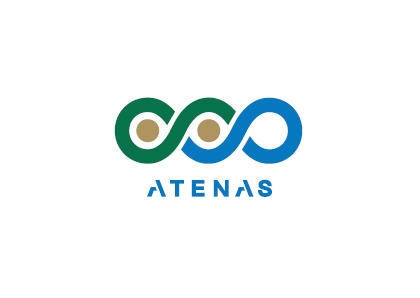
Area characterisation:
- Łódź (Poland): The upper catchment of the Lodka River. Challenge: Drying urban rivers due to mismanagement of rainwaters, simultaneous pluvial flooding and degradation of city greenery, regulation of brooks and rivers impacting ecosystem services.
- Helsinki metropolitan region (Finland): Kivistö in the city of Vantaa and Malmi in the city of Helsinki. Challenge: Densification of urban areas impacts stormwater management and limits space for rainwater storage and greenery.
- Lyon (France): Yzeron river. Challenge: Pollution leaking from sewage system and urban areas leading to degradation of river ecosystems, services such as self-purification.
Objective:
AteNas is built around 3 demonstration sites, covering urban and periurban zones of Łódź, Lyon and Vantaa/Helsinki and sharing the challenge of enabling water to citizens and nature, both in terms of quality and quantity.
Utilize of cities water resources to secure regulating ecosystem services, enable Nature-Based Solutions, and enhance adaptive capacity to global changes.
Financing:
ATENAS project “To Ally Technology, Nature and Society for integrated urban water management” funded under the program WaterWorks2017 of JPI Water
Nationally the project is funded by The National Centre for Research and Development, (NCRD, Poland), Suomen Akatemia (AKA, Finland) and Agence National de la Recherche (ANR, France).
Potential impacts/benefits:
-
Research. Two pillars of water management: 1. Modelling of water dynamics in catchments and options to influence it with collaboratively designed NbS, and 2. Dynamics of stakeholder interactions in the context of societal / administrative / legal / economic conditions.
- Capacity building. The learning alliance approach, opens a way for mutual learning among civilians, decision makers, engineers and academics, breaking the communication and value barriers, and opening a deliberative process for envisioning of targets.
- Implementations. Small scale participatory implementations are to strengthen mutual learning process and reveal leadres, means, and options enabling upscaling of NbS in ATENAS cities.
Actions:
AteNas wants to capitalize on knowledge on NbS, and to make it accessible to non-professionals.
AteNas focuses on both experimental implementations of NbS based on co-design and living-lab approach, and tracing and learning from the process of community building.
It has ambition to trigger citizen projects and to provide a toolbox for scaling up NbS effect on water management and society.
Finland
Intervention: AteNas analyzes opportunities and barriers of recently implemented nature-based stormwater management systems in Helsinki metropolitan region, and promotes collaboration and co-design action with city planners to enhance implementation of NbS in urban planning.
Poland
Intervention: ATeNaS supports an analysis of options for increased water storage and infiltration in urban commons through participatory design and implementation of demonstrative NbS, community building actions, analysis of upscaling options for water infiltration NbS.
France
Intervention: AteNas involves training of decision-makers in NbS, the analysis of the self-purification capacity of the territory’s rivers, developement of partnership with stakeholders for the construction of new NbS (porous ramps, wetlands and river ecotones) to amplify the self-purification capacity of small rivers, and release of NbS catalogue dedicated to the treatment of urban runoff.
Organisations:
The ATENAS consortium consists of four partners: European Regional Centre for Ecohydrology of the Polish Academy of Sciences (ERCE PAS), FPP Enviro, French National Research Institute for Agriculture, Food and Environment (INRAE), and Finnish Environment Institute (SYKE).
Contacts:
Kinga Krauze, AteNas Project Coordinator
NBS goals:
- Enhancing sustainable urbanization
- Restoring ecosystems and their functions
- Improving risk management and resilience
- Urban regeneration through nature-based solutions
- Nature-based solutions for improving well-being in urban areas
NBS benefits:
- Developing climate change adaptation; improving risk management and resilience
- Flood peak reduction
- Increase infiltration / Water storage
- Increasing infiltration
- Reduce drought risk
- Reduce flood risk
- Reduce run-off
- Developing climate change mitigation
- Restoring ecosystems and their functions
- Improve connectivity and functionality of green and blue infrastructures
- Increase achievements of biodiversity targets
- Increase quality and quantity of green and blue infrastructures
- Increased cultural richness and biodiversity
- Enhancing sustainable urbanisation
- Changing image of the urban environment
- Improve water quality
- Increase accessibility to green open spaces
- Increase amount of green open spaces for residents
- Increase awareness of NBS solution & their effectiveness and co benefits
- Increase communities’ sense of ownership
- Increase social interaction
- Increase stakeholder awareness & knowledge about NBS
- Increase well-being
- Provision of health benefits
- Social inclusion
- Social learning about location & importance of NBS